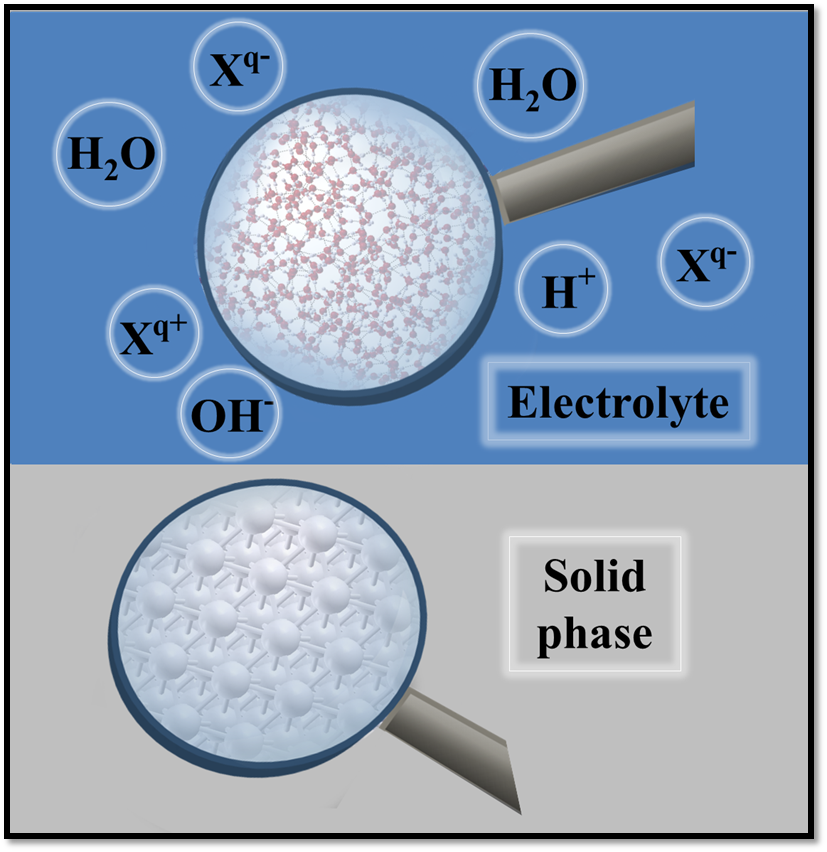Scientific scope and context

Most electrochemical processes of practical importance (e.g. water electrolysis and H2 fuel cells for the upcoming “hydrogen economy” of the 21th century, metal corrosion, electro catalysis, etc.) take place at the interface between a solid (electrode) and a liquid phase (electrolyte). A systematic development, improvement and optimization of any of these requires an understanding of the underlying elementary processes and their interplay. Such understanding can only be achieved by addressing the relevant questions using experimental techniques and theoretical modelling as complementary tools, in analogy to what is a common and very successful practice in the realm of surface science.
Unfortunately, the aqueous electrolyte presents a challenge both to experiments, aiming at atomic processes, and to theoretical modelling. In addition, any theoretical description using quantum mechanical methods faces the difficulty that water reveals its typical properties only beyond atomistic length and time scales. Effects like H-bonding networks and their dynamics, configurational diversity, and interactions with electric fields play hereby a central role. Since these effects couple to and influence the relevant surface processes the whole complexity of each of the constituent phases reveals itself at the solid/liquid interface. Describing this complexity by a “brute force” simulation approach is neither practicable nor desirable, especially in view of the reduction to relevant mechanisms constituting one decisive contribution by theory. Developing effective modelling techniques which contain all the relevant aspects and mechanisms of the aqueous electrolyte is, consequently, of the utmost importance. Since the liquid phase and its properties play a central role in other realms of science as well (in particular bio-systems and polymers), approaches allowing for an effective description of various “water aspects”, implicit consideration of the configurational freedom of a liquid, or combining quantum-mechanical and empirical schemes (QM/MM), already exist.
Identifying the requirements, challenges and possibilities for an effective description of electrolytes will greatly benefit the modelling of electrochemical problems. We believe that it is time to bring together leading scientist from the area of water simulations, simulations of liquids, coupling of different modelling descriptions and the theory of electro-chemistry, to share and exchange their methodological and conceptual experience, by discussing various approaches, the diverse aspects of an electrolyte and the practicalities of simulations.
